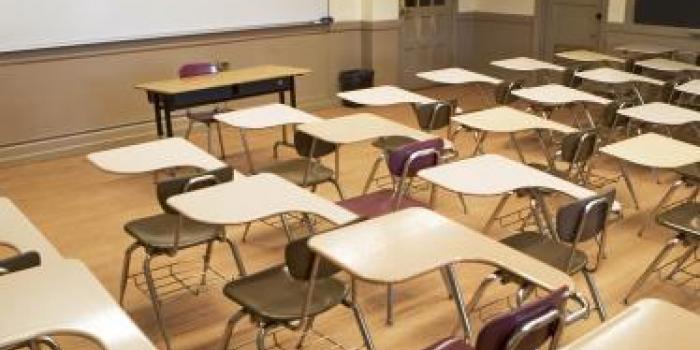In preparation for the rollout of CBC to Junior Secondary, the Ministry requested the CDE to provide a list of public primary schools that will be used as Junior Secondary. This is greatly appreciated as all the CDEs responded.
However, it has become necessary to indicate the number of junior secondary classes available in each primary school.
The National Treasury earlier this month released an initial ₹4 billion to the Ministry of Education to launch the first phase of the CBC school infrastructure development program.
A total of 1.2 billion from the Education Ministry’s infrastructure fund will be used to build 6,500 classrooms in 6,371 secondary schools.
Professor Fatuma Chege, Principal Secretary of the State Department for Curriculum Reform Implementation, schools will also be placed in secondary schools.
Pro. Chege made these comments in response to uncertainty over the placement of students in grades 7, 8 and 9 next year as well as the school’s management.
Julius Jawan, principal secretary of basic education, said there was a ruckus after junior secondary classes were held in both secondary and primary schools.
Jawan also said that the current classes used by grades 7 and 8 will be used for grades 7, 8 and 9 next year. Starting in 2023, junior secondary schools will have their principals, deputy principals and senior teachers.
“Due to the introduction of CBC, the classes used by the students of class seven and eight will remain vacant. But classes won’t go to waste because they are public resources. Instead, they would be used by students of junior secondary schools,” said Jawan.
On the other hand, Prof. Chege explained that if for some reason a junior secondary school classroom is accommodated in surplus classrooms in an elementary school, that is only accommodation; They do not belong to elementary school; They are domiciled in the secondary sub-region.
Thus the section would have its own board, and if the government wanted to set up a junior secondary school using the existing infrastructure in the primary school, that primary school would have a junior secondary school, he added.
“Junior Secondary School will be domiciled in secondary schools. There should be no confusion between domiciling, hosting or rendezvous. If you are accommodated or hosted, you are a guest, but when you are domiciled, you are legally residing there,” said PS Fatuma Chege.
Pro. Chege, who sought to clarify the ongoing debate over the placement of the first batch of grade six candidates under the 2-6-3-3-3 curriculum in junior secondary schools, emphasized that there are primary schools that host junior do. In such cases the secondary school, management and administration would be independent of the primary school.
PS was speaking at St. Maria Goretti Ruruguti Secondary School in Othaya, Nyeri County. He oversaw the creation of the first full classroom as part of a competency-based curriculum project.
The Education Cabinet Secretary, George Magoha, has already announced a new 10-month training program for teachers, who will be in charge of the upcoming Grade 7.
Magoha said on Monday 14 February at Kapsabet Girls High School in Nandi County that the 10-month training would take place between the months of February and December.
The target of training is to train a total of 60,000 teachers. More than 120,000 primary school teachers have already been trained to handle Grade 6. The Teachers Service Commission (TSC) announced last year that it would train 60,000 secondary school teachers to handle junior secondary in April 2022.
Education PS approves broadcast on hosting of CBC’s Junior Secondary School
The commission also said that it would hire more teachers to manage junior secondary schools with an additional budget of Sh15 billion received for the financial year 2022–2023.
According to a report submitted by the Parliamentary Budget Office to the National Assembly’s Education and Research Committee, the TSC plans to use its increased allocation.
Sh15 billion will be spent to hire 13,000 secondary school teachers and 9,000 interns to deal with the expected increase in exit and enrollment when junior secondary comes into force in January 2023.
According to Magoha, three national exams for grade 6, the Kenya Certificate of Secondary Education (KCSE), and the Kenya Certificate of Primary Education (KCPE) are ready for administration.
He said, ‘The government is continuous and if I am not there then whoever comes to power will find everything ready and our children will be safe. As far as the welfare of our children is concerned, we are leaving everything in good condition,” he said.
Magoha also said that all CBC classes would be completed by the end of January 2023. Competency-Based Curriculum (CBC) will be extended to junior secondary schools in 2023. Grades 7, 8, and 9 will form junior secondary schools.
Pioneer students in the new 2-6-3-3-3 CBC system will graduate junior secondary school in 2023 after passing grade six national exams.
However, CBC students could face a major setback after public universities revealed that they were not ready to accept them.
University of Nairobi Vice-Chancellor Professor James Kiama said on NTV on Wednesday night, 16 February, that the first batch of CBC students will bear the brunt of the lack of preparation when the university starts.
He believes that introducing CBC is a good idea and less costly system for the students, but making the universities in the country ready to accept the students is a big challenge.
Kiama explained that, using the 8-4-4 system as an example, CBC learners would face setbacks in their curriculum at the university level, unless the government worked with higher education institutions to prepare quickly. It will be a little cheaper for the students.

